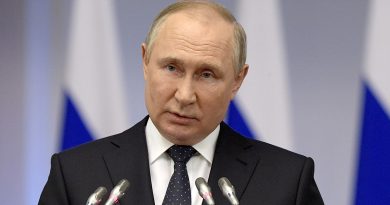China to Spearhead UN Sanctions on North Korea
By Shannielle T Thompson
Staff Writer
The Chinese government, in an effort to show its commitment to the implementation of United Nations Security Council Resolutions, announced a ban on North Korean coal imports on Sunday, February 19. The ban comes days after North Korean authorities sang praises of success in testing a new medium long-range ballistic missile, the “Pukguksong-2,” according to CNN.
The Chinese Ministry of Commerce posted an official statement saying, “Imports of coal produced in North Korea –including shipments already declared to the customs but yet to be released – will be suspended for the remainder of this year.” The sanctions are in place to restrict the flow of capital into North Korea that would be used to fund the country’s nuclear weapons project.
This now calls into question the ultimate state of North Korea’s economy, and the long-standing relationship between the two allies, as China calls for a deal with the Trump administration and its allies, said Bloomberg.
With China supporting the Security Council’s decision to impose harsher sanctions on the Kim Jong-un administration, the world believes that the country’s already ‘fragile’ economy may be at a detriment. However, North Korean economist Ri Gi Song, shares different views. According to CNN, Ri Gi claims the “so-called restrictions” won’t have as much of an adverse effect, as the country profits more from exporting other raw materials such as magnesium and graphite.
The researcher at the Institute of Economics at the Academy of Social Sciences also stressed that North Korea composes almost half the world’s supply of those two raw materials necessary for technological advancements which “is very important for major world economies”.
Many sources, however, report that the move is expected to affect North Korea’s earnings as coal is the country’s largest export item and a substantial source of foreign currency income. China, currently North Korea’s main global ally, is also their number one importer of coal. According to The New York Times, in 2016, China imported 22.5 million metric tons of coal from North Korea an increase of 14.5 percent on the amount in 2015. In previous years, 86 percent of the country’s exports also went to China.
In a unanimous vote last November, the Security Council adopted Resolution 2321, which imposed what CNN called “the toughest sanctions yet against North Korea.” The sanctions are expected to slash coal exports by at least 62 percent, and affect other sectors to ultimately cost North Korea an expected $800 million by year’s end, reports CNN.
China’s support of the sanctions comes with added efforts to resume talks in order to “break the negative cycle on the nuclear issue,” reports Bloomberg news. Chinese Foreign Minister Wang Yi told reporters at a G20 ministerial meeting in Germany that the issues surrounding North Korean nuclear advancement mission can still be resolved through diplomacy.
However, South Korean authorities and the Trump administration are calling for harsher penalties. President Trump, who during his campaign hinted at negotiations with Kim Jong-Un is now promising “to deal with North Korea very strongly after its latest missile test”. Both South Korea and the U.S. are partnering to set up a defense system called Thaad in South Korea. This is said to be an ultimate challenge for China’s military capabilities, hence the urge for a new deal.


